Animal Immunology and Microbiology
Veterinary immunology, defined as the study of the immune systems of domestic and wild animals of economic or sentimental significance to humans, provides both practical knowledge and novel insights into basic immunology. It is a subdiscipline of biomedical science that is linked to zoology and veterinary medicine. Animal immune system malfunctions and disorders, as well as their health, are of interest. It's intriguing about how the immune system works, how vaccinations prevent disease, and why certain vaccines don't function or cause side effects. Developing novel immunologically based diagnostic tools and immunotherapeutic techniques, such as vaccine approaches, are clearly essential applied goals. Domestic animal disease resistance could also be improved by genetic selection for immune features.
Veterinary microbiology is concerned with microbial (bacterial, fungal, and viral) diseases that affect animals that provide food, other useful products, or companionship. Antimicrobial resistance research is incorporated in a variety of animal microbiology studies. Wild animal microbial diseases are also researched in animal microbiology if the infections are of particular interest due to their interactions with humans (zoonosis) and domestic animals. Veterinary microbiologists are doctors who specialise in researching microbes that cause sickness in animals. Vaccines, medicines, and other animal health items are frequently developed at their laboratories. Veterinary microbiologists research a wide range of disease-causing microbes, such as viruses, bacteria, and parasites.
- Clinical Immunology
- Mechanisms of The Immune System
- Immunochemistry
- Immunodeficiencies
- Immunodiagnosis
- Immunogenetics
- Immunopathology
- Immunology of Infectious Disease and Tumours
- Immunoprophylaxis
- Vaccine Development and Delivery
- Immunological Aspects of Pregnancy Including Passive Immunity
- Autoimmunity
- Neuroimmunology
- Transplantation Immunology
- Monoclonal Antibodies
- Bacterial and Viral Diseases
- Microbial Diseases of Wild Animals
- Antiviral or Microbial Agents
- Zoonotic Diseases
- Role of Microorganisms in The Evolution of Animals
- Microbiome and Gut Microbiota of Animals
- Prevention, And Treatment of Microbial Diseases

Marco Polettini
DVM, Italy
Andreia Freitas
INIAV/REQUIMTE, Portugal
Andreia Freitas
INIAV/REQUIMTE, Portugal
Kedibone Gloria Kgosana
Sefako Makgatho Health Sciences University, South Africa
Nnenna Ugwu
Anglia Ruskin University, United Kingdom
Rubens Dias de Melo Junior
Universidade Federal de Goiás, BrazilSubmit your abstract Today
Important Alert:
X


Title : Analyzing veterinary medicine residues in food: A comprehensive guide
Andreia Freitas, INIAV/REQUIMTE, Portugal
Title : Quantifying changes in facial expression following hot-iron disbudding under procaine hydrochloride and meloxicam treatment in Holstein dairy calves
Nnenna Ugwu, Anglia Ruskin University, United Kingdom
Title : Trypanosoma vivax in and outside cattle blood: Parasitological, molecular, and serological detection, reservoir tissues, histopathological lesions, and vertical transmission evaluation
Rubens Dias de Melo Junior, Universidade Federal de Goiás, Brazil
Title : Characterization of porcine rotaviruses in the Czech Republic
Romana Moutelikova, Veterinary Research Institute, Czech Republic
Title : Determination of Circulating Foot-and-Mouth Disease Virus Serotypes in Kenya (2023)
Hellen Mutua, Foot and Mouth Disease National Reference Laboratories, Kenya
Title : Welfare for Amazonian wild animals
Eliane Cardoso Carvalho Moraes, Jungle Warfare Training Center/ Army, Brazil